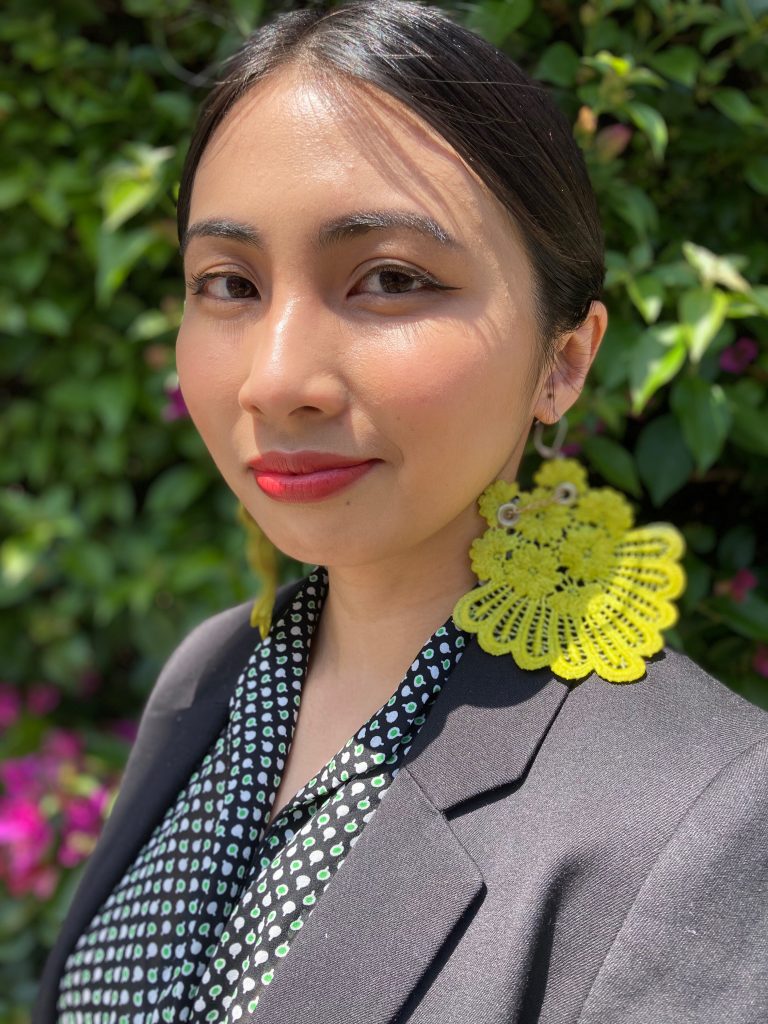Listen to MT Vallarta read “And I said—” and “A Refrain.”
And I said—
You asked me to marry you on a gurney. Is this the real life or is this a My Chemical Romance song. For three hours, I sat in the waiting room next to your mother. I counted the M&M’s and peanuts in my bag of trail mix and read the same verse by Louise Glück over and over until it became paper nailed to my skull. Luckily, you’re dead; otherwise you will learn that love and trauma make strange bedfellows. You can love someone enough to pull them back by the scruff of their neck, but forget you’re still the one who pushed them. I guess that’s why I put my arms in my face and let a tiny blade sever the nerves in my left middle finger.
“a fortunate life”: it means/to exist in the present. I was just fortunate to still have a part of you to hold. Never mind if that part became lost in glasses of whiskey and pipes full of wax. Or that I cradled it alone in a closet one night, waiting for the hurricane inside you to calm. It’s funny how safe the dark can become.
I wish someone loved me just as strong. I worry it is not my strength, but my desperation. How many people can say they found love after reading each other’s suicide notes, or by throwing lit cigarettes into a swimming pool just to see the smoke curve then falter. I loved you not because it was the right thing to do, but because every beat, blood, and bone in my body quivered with a want. I want your brain to take you somewhere safe. To turn into the sunflower I call you. I want your scars to turn into a map. A path to that place where your petals can dance.
I want us to move past the hurting, perhaps into a holding and carrying.
I will hold your hands. I will carry you. I will carry all I can.
A Refrain
At some point, we all need to ask ourselves how many chances am I worth giving. Has it been, like what, six different therapists now? When do you know it’s time to start darkening your line with permanent marker, to wring the fear out of yourself like water from a towel.
I tell myself it’s okay to challenge you. I tell myself that lying is just another part of imagining. How do you do that? How do you get your brain to work so you don’t feel sad? Don’t shrug. That’s not fair to the rest of us.
It’s like telling your stomach not to rumble when it’s hungry. Like telling your skin not to bleed after cutting it.
“It’s been six and counting.”
***
How many times have I woken you up like this, with night terrors collecting knots in your hair. Will you shower today? The evening passes with a dead skin smell.
You would be better off if I never wished I was alive until I felt my fingertips tingle from tracing your lines. Did you know that sweaty palms run in my bloodline. My mother once soaked my sister’s hands in ice water, hoping the temperature would freeze her glands. Instead, the water migrated to her feet, dribbling into a puddle.
The tale of a place is the tale of its water. The night I left the hospital, you left a single drop of water on your paperwork. A tiny gray splotch. The contour of a tear.
***
What is a pattern but a chorus. A repetition of a verse. What is self-harm but a mechanism, a new cog in the body’s pain receptors.
 MT Vallarta is a poet and Ph.D. candidate in Ethnic Studies at the University of California, Riverside, and forthcoming Guarini Dean’s Pre- to Postdoctoral Fellow in Asian American Studies at Dartmouth College. They have received awards and fellowships from Kundiman, the Chair in Transgender Studies at the University of Victoria, British Columbia, and Philippine American Writers and Artists, Inc. Their scholarship and poetry can be found in The Velvet Light Trap, VICE, The Bind, Breadcrumbs, Nat. Brut, Apogee Journal, and others.
MT Vallarta is a poet and Ph.D. candidate in Ethnic Studies at the University of California, Riverside, and forthcoming Guarini Dean’s Pre- to Postdoctoral Fellow in Asian American Studies at Dartmouth College. They have received awards and fellowships from Kundiman, the Chair in Transgender Studies at the University of Victoria, British Columbia, and Philippine American Writers and Artists, Inc. Their scholarship and poetry can be found in The Velvet Light Trap, VICE, The Bind, Breadcrumbs, Nat. Brut, Apogee Journal, and others.

Leave a Reply